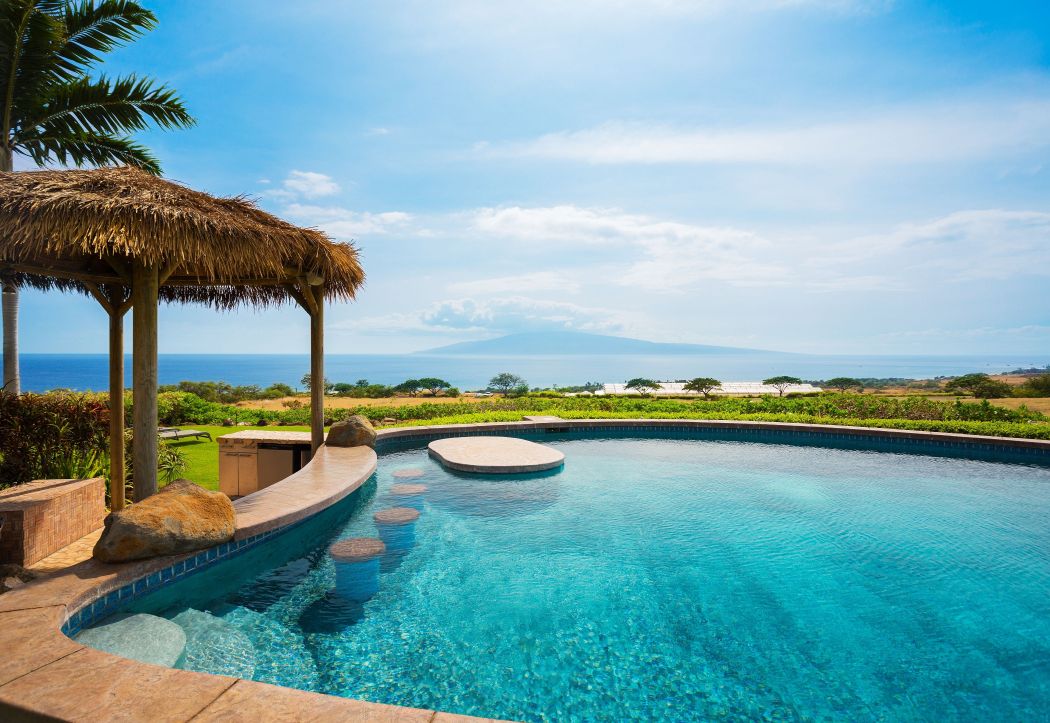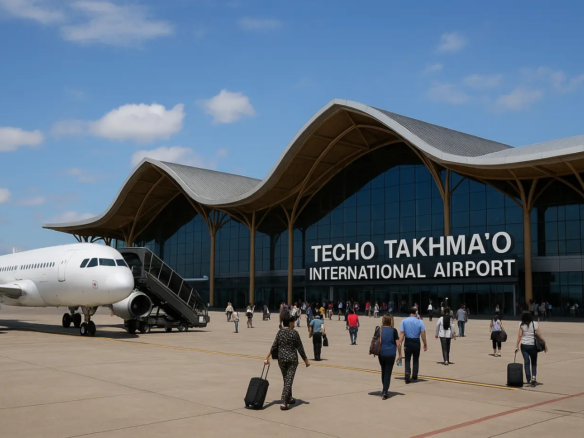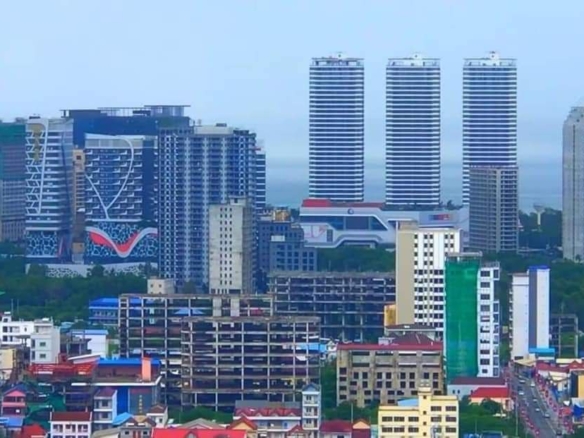The 1993 Cambodian Constitution states that only persons or legal entities of Khmer nationality have the right to own land. However, this law does not prohibit foreigners from investing in land in Cambodia.
This law does not prohibit foreigners from investing in land in Cambodia, though Cambodian Law doesn’t allow foreigners to own land directly in their names. If you are considering investing in real estate in Cambodia and looking for buying land or a landed property, here are the 6 legal and safe methods for foreigners to buy and own land in Cambodia.
Cambodia’s hard title and LMAP land sale system are centralized and reliable. Banks approve mortgages for hard title land & LMAP title land hypothecs in Cambodia. Additionally, a ´notice for blocking the sale´ as well as a mortgage can be safely and reliably registered with the Land Department offices of the Ministry of Land Management, Urban Planning and Construction, instructing the office not to sell the land without the foreigner owners´ permission.
Setting up a Land Holding Company (recommended)
The first option for foreign ownership is to establish a company to hold the land. A LHC can be set up so that minority shareholders (foreigners) hold 49% of the company and have sole decision-making and voting rights in the company, while the other shareholders (Khmer nationals) hold 51% of the company and have limited rights and powers.
Setting up a Land Holding Company (LHC) is the safest method and totally legal. Unlike Thailand, you have full control of your freehold land and landed property in the company method.
The applicable legislation, the Law on Investment in the Kingdom of Cambodia, chapter VI, Article 16 says that the ownership of land is transferred to a legal entity if more than 51% of the capital belongs to a natural or legal person with Cambodian citizenship.
Extensive security documents take power away from the majority shareholder (the Khmers hold 51% of the company) and give it to the minority shareholder (foreigners hold 49% of the company), making LHC a secure form of foreign ownership. The majority shareholder must be a Cambodian citizen (it can be 2 Khmer citizens of 25% and 26% for instance). Several private agreements are usually drawn up by which the Cambodian shareholders grant the foreigner special rights – e.g. a permanent majority on the board, or different powers of attorney, or blank shareholder transfer forms.
It is recommended that the property that is purchased is pledged with the name of the foreigner as the lender. A mortgage registration document should be submitted to the competent land registry before the sale of the acquired land and its property to ensure that the land can be used as collateral for the loan, which is not possible unless the foreigner instructs the land registry to exempt the mortgage-secured land from its ownership. The use of land permitted to investors may include long-term leases of up to 50 years, which may be extended upon request.
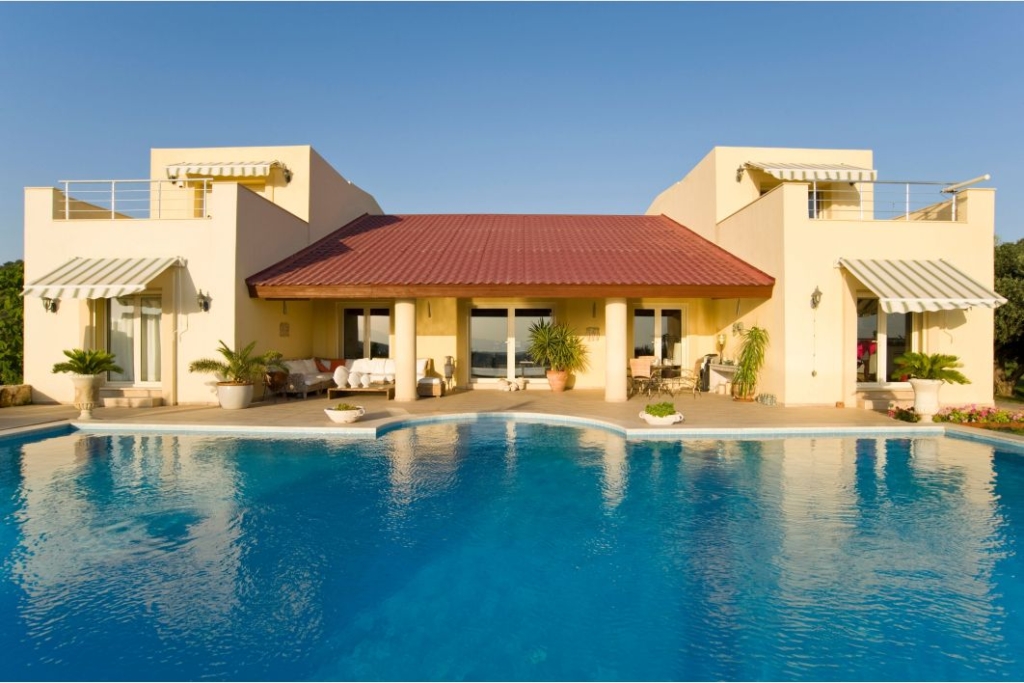
Company setup costs
- Company setup through a lawyer or a tax office: $1500-3000
- Shareholder fee: annual or one time, depends on negotiations
- Time: 3 weeks – 1 months
Maintenance costs
Unless you are running a business with this company, you’ll need an office address (can be your home address or a rental for at least 6 months), and you’ll need to fill a monthly tax form from gov online system. It is easy, you can do it by yourself. If you need help, tax offices can do it for $50-100 per month.
Cost of Selling the property vs selling the company
If you sell the company with its assets instead of selling the land, you won’t pay a profit tax. If the owner is a company, if you sell the land there is additional profit tax (20%). Transfer of ownership of a company with the assets can be finalized in 3-4 weeks through the Ministry of Commerce.
Trust services in Cambodia
On 25 December 2018, the Law on Trusts was adopted by the Cambodian parliament and then declared by Decree on 2 January 2019, introducing a new concept (Trust) in Cambodia’s legal system. This new law provides a basic framework for the creation of trusts in Cambodia, regulating the establishment, registration, management, and control of such trusts.
A trust agreement states that a Trust company holds and manages the property of a person who has founded a Trust company (called a grantor, a settlor, or trustee) and transfers the property to a trustee to administer it for the benefit of others (called beneficiaries). The trustee is obliged to manage, develop and build up the assets of the trust fund in order to achieve the purpose of the trust fund for the benefit of the beneficiaries. The owner of the property transfers ownership to the trustee, who administers the assets and income from the assets.
Trust companies can buy the freehold land and landed property for you and let you use all ownership rights for a fee.
In Cambodia, there are reliable trust companies that can buy land for a foreigner and hold it, let the foreigners have full rights of the land and/or landed property as of a freehold owner. Hong Kong & Cambodia-based GC Trust by GCC developer company, Cana Trust by Canadia Bank, as well as other private Trust companies are currently providing trust services in Cambodia. There are also attorneys (solicitors) who offer Trust for land and landed property.
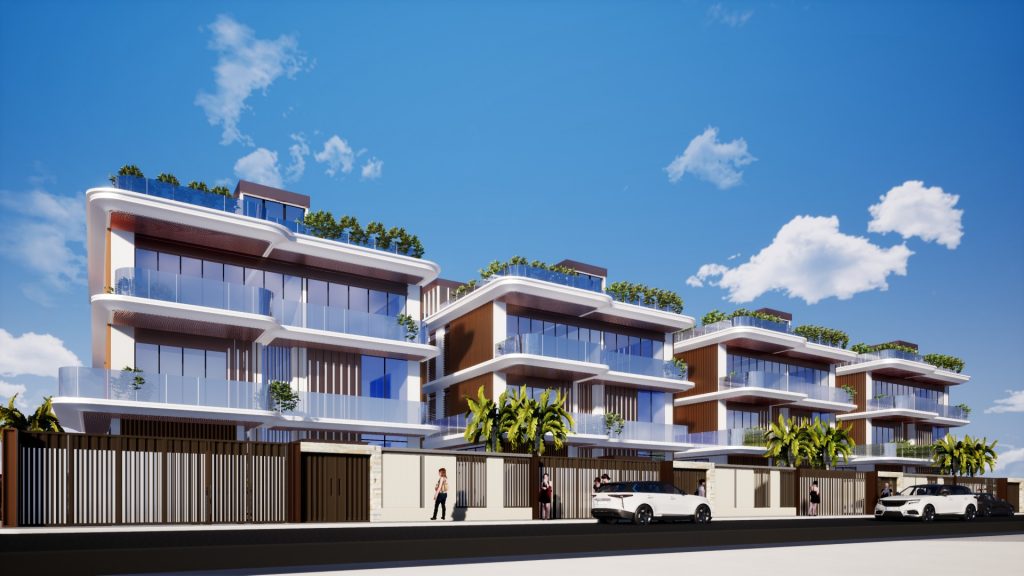
Through a Cambodian nominee (only valid if the nominee is wife/spouse)
The Cambodian Constitution Law of 1993 states that the only person or legal entity with Khmer nationality has the right to own land. Another way to offered foreigners to buy land is for a Cambodian representative to hold the title on their behalf. Not recommended unless the nominee is your spouse.
Nominee ownership is a commonly used method and frequently offered by real estate companies because it is the easiest one in terms of paperwork and time spent. Nevertheless, the nominee method has serious flaws and is not recommended.
If the nominee is your wife/husband, then his/her being a nominee for you to purchase land is totally legal. Keep in mind that you can’t sell the property without permission from your wife/husband in Cambodia if your marriage is registered in Cambodia (i.e., you have a Cambodian wife or husband).
According to the nominee structure, a foreigner signs with a Khmer citizen a trust agreement that grants a foreigner full right to control and purchase land. It is easy and inexpensive to use this system, but it is discouraged because it violates the Khmer Constitution Law, which prohibits direct foreign ownership and makes it illegal. Documents are designed to prove that foreigners have control over the purchase of land.
Cambodian courts many times found the nominees “right” in many cases in the courts and interpreted the nominee method as an evasion of the Cambodian law. We recommend using the other methods, that are safe and legal, and recognized by the Cambodian government.
Acquiring a Cambodian citizenship
Cambodia allows dual citizenship. The person must have lived or become a Cambodian citizen or naturalization in the country for at least 7 years to get citizenship by naturalization, and 3 years by marriage. Knowledge of Khmer language, culture, and history is obligatory. Applying for Khmer citizenship, naturalization, or donations for the further restoration and reconstruction of the country’s economy. Becoming a Khmer citizen gives foreigners the right to own land and encourages them to become citizens.
Acquiring a Cambodian citizenship by donation
Article 12 of the Cambodian Nationality Act (1996) provides a way to obtain Khmer and Cambodian citizenship through investment by donating $250,000 in cash to the Cambodian economy. Any foreigner who makes a cash donation of USD 100 million (Riel) or more from the state budget and has an interest in the reconstruction and reconstruction of the country’s economy has the right to apply for Khmer citizenship if he or she meets the conditions set out in Article 8 of Law On Nationality, paragraphs 1, 2, 5 and 6.
Acquiring a Cambodian citizenship marrying a Cambodian
It is also possible for foreigners who marry a Cambodian citizen who has been in the country for 3 years to apply for Cambodian citizenship. If you marry a Khmer spouse, you can apply for citizenship there after three years, provided the marriage is registered. Foreign buyers married to a Cambodian national can register real estate on the title deed under the name of the Cambodian national.
Keep in mind that, even if the property belongs to you, and you are married to a Cambodian, then you can’t sell your property in Cambodia without your wife’s/husband’s permission.
Additionally, a ´block sale notice´ can be registered with the Land Department, instructing the office not to sell the land without the foreigner owners´ permission.
We discussed freehold property ownership methods above. For freehold title deed types, read our article on freehold property title types.
There are also legal ways of owning a property for 50 years leasehold in Cambodia. 50 years lease time is highly profitable and higher than what Thailand offers. It is popular amongst ASEAN investors.

Leasing land from landlords under 50 years contract [leasehold]
Long-term leases are the most common way for foreigners to control land in Cambodia. Several private agreements concluded with Cambodian shareholders grant special rights to foreign investors. It is valid and safe with additional security agreements.
Long-term leases have a maximum validity of 50 years (can be extended) according to the Civil Code introduced in December 2011. These leases can be registered by the Ministry of Land Management, Urban Planning and Construction (MLMUPC) at the national level. Long-term leases are a compromise that many international investors have chosen because of the difficulties of foreign ownership in Cambodia.
You will need security agreements such as a mortgage and ‘notice to block sales’ to prevent a second sale of the property. The mortgages and block sales notices are reliable and central directly from the Land department offices of the Ministry of Land Management, Urban Planning and Construction.
Investing in land through concessions of 50 years [leasehold]
According to the Minister of Economics and Finance (MEF), H.E Aun Porn Moniroth, currently, in Cambodia, there are 231 private companies leasing a total of 1.1 million hectares of land from the state. (source)
The Cambodian government has promoted long-term leasing of unused land through economic concessions to attract investors and promote since the early 1990s to offer out the land plots to private companies at bargain prices. The country’s Land Act of 2001 grants the government the right to issue Economic Land Concessions (ELC) that can be leased for up to 99 years, on the pretext of improving the local economy and developing a thriving agro-industry. Long-term leases have a maximum term of 50 years, as provided for in the Civil Code introduced in December 2011. Leases concluded before December 2011 will be maintained for a maximum of 99 years.
As an example, in 2008, the Cambodian government granted a 99-year lease of huge land to a Chinese company (Union Group) in Dara Sakor. The lease covers an area near Koh Kong that is more than twice the size of Washington D.C., and 4 times the size of Paris covering 45,000 hectares of land. The company holds 99 years of lease rights. Yet, the clients who purchase (sublease) property in Dara Sakor from this company can have leases maximum of 50 years which can be extended after 50 years.
There are land concessions to private companies in all over Cambodia, on islands, in Sihanoukville, Ream, Koh Kong, Kampot, Ream, Siem Reap, and Phnom Penh.
Contact us for available leasehold concession investment opportunities in Cambodia.
Land purchase cost and taxes:
If you are purchasing the property as a freehold, then there will be a purchase tax and an annual tax.
Purchase tax: 4% (usually paid by the seller but there is no standard, and it is negotiable between the seller and the buyer)
Annual tax: 0.1% of the purchase price
Transfer fees: $800-$1000 ´service fee´, paid to the cadastral office, which covers all other ´service fees´.
If you are using the company method to purchase land, then we recommend selling the company instead of selling the land when the time comes. If the owner is a company, when they sell the land, there is an additional profit tax (20%). However, there is no profit tax when you transfer company ownership.
If you are leasing the land for the long term, then there will be a 10% tax from the submitted gross rental annual income. Yet, there won’t be a purchase tax in leasing models.
Contact us for any questions and inquiries about ownership, land and landed property as well as real estate services.

FAQ
There are 6 legal and safe methods for foreigners to buy and own land and landed property in Cambodia. 1) Setting up a Land Holding Company (LHC), 2) via legal Trust companies, Bank or Solicitors, 3) Nominee method (only recommended within the family), 4) Acquiring Cambodian citizenship by marriage, naturalization, or donation, 5) Long term lease, up to 50 years, 6) Land concession by the government up to 50 years.
There are four legal and safe methods for foreigners to buy and own freehold land and landed property in Cambodia. 1) Setting up a Land Holding Company (LHC), 2) via legal Trust companies, Bank or Solicitors, 3) Nominee method (only recommended within the family), 4) Acquiring Cambodian citizenship by marriage, naturalization, or donation.
Condos (modern apartment units) and office strata upper than the ground floor and a 70% of total ownership of foreigners in a building is the restriction if you want to purchase a property as a foreigner individual in Cambodia. Nonetheless, if the foreigners set up a Land Holding Company or use a Trust service, they can buy and own land and landed property as well.
Company set up through a lawyer or a tax office will cost $1200-3000. The shareholder fee is annual or one-time, depends on negotiations can be $1000-3000 or a commission from the future sales of the purchased property. It is a quick process. The company will be operational in 3 weeks – 1 month.
You’ll need an office address. It can be your home address or a rental for at least 6 months. If you don’t have an office address you can rent an address-only office from $50-100 per month. Additionally, you’ll need monthly tax form filling from gov online system. It is simple, you can do it by yourself. If you need help, tax offices can do it for $50-100 per month.
We recommend selling the company with its assets instead of selling the land when the time comes. If the owner is a company, if they sell the land there is additional profit tax (20%). Yet, when you sell the company, there will be no profit tax.
If he/she is your wife/husband, yes. Otherwise, it is not legal. There are safe and legal methods such as a Land Holding Company setup, using Trust service offered by Canadia Bank or private Trust companies or solicitors.
With the security agreements such as block sales notice or mortgage from the Ministry of Land Management, Urban Planning, and Construction offices, renting for 50 years is safe.
Yes, Cambodia both has a reliable mortgage system (hypothec) and sales blocking from the Land department offices of Ministry of Land Management, Urban Planning and Construction (MLMUPC).
Hard title and LMAP land plots, hard title old apartments, strata title condos, and offices, villas and buildings on the hard title or can be mortgaged by banks, by people or by companies, hypothec as well as “blocking with a no sell notice” from Land department offices in the Ministry of Land Management, Urban Planning and Construction.

